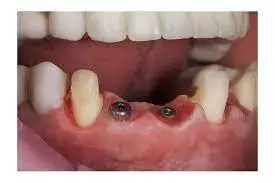- Home
- Medical news & Guidelines
- Anesthesiology
- Cardiology and CTVS
- Critical Care
- Dentistry
- Dermatology
- Diabetes and Endocrinology
- ENT
- Gastroenterology
- Medicine
- Nephrology
- Neurology
- Obstretics-Gynaecology
- Oncology
- Ophthalmology
- Orthopaedics
- Pediatrics-Neonatology
- Psychiatry
- Pulmonology
- Radiology
- Surgery
- Urology
- Laboratory Medicine
- Diet
- Nursing
- Paramedical
- Physiotherapy
- Health news
- Fact Check
- Bone Health Fact Check
- Brain Health Fact Check
- Cancer Related Fact Check
- Child Care Fact Check
- Dental and oral health fact check
- Diabetes and metabolic health fact check
- Diet and Nutrition Fact Check
- Eye and ENT Care Fact Check
- Fitness fact check
- Gut health fact check
- Heart health fact check
- Kidney health fact check
- Medical education fact check
- Men's health fact check
- Respiratory fact check
- Skin and hair care fact check
- Vaccine and Immunization fact check
- Women's health fact check
- AYUSH
- State News
- Andaman and Nicobar Islands
- Andhra Pradesh
- Arunachal Pradesh
- Assam
- Bihar
- Chandigarh
- Chattisgarh
- Dadra and Nagar Haveli
- Daman and Diu
- Delhi
- Goa
- Gujarat
- Haryana
- Himachal Pradesh
- Jammu & Kashmir
- Jharkhand
- Karnataka
- Kerala
- Ladakh
- Lakshadweep
- Madhya Pradesh
- Maharashtra
- Manipur
- Meghalaya
- Mizoram
- Nagaland
- Odisha
- Puducherry
- Punjab
- Rajasthan
- Sikkim
- Tamil Nadu
- Telangana
- Tripura
- Uttar Pradesh
- Uttrakhand
- West Bengal
- Medical Education
- Industry
Higher odds of implant failure reported in patients with penicillin allergy who were prescribed clindamycin

There is growing evidence highlighting the inefficacy of clindamycin as an effective substitute to amoxicillin in patients self-reporting a penicillin allergy. The hypothesis is that implant failure is higher in these patients, when compared to patients receiving penicillin.
Higher odds of implant failure reported in patients with penicillin allergy who were prescribed clindamycin suggests a new study published in the Clinical Oral Implants Research
Growing evidence is highlighting the inefficacy of clindamycin as an effective substitute to amoxicillin in patients self-reporting a penicillin allergy. The hypothesis is that implant failure is higher in these patients, when compared to patients receiving penicillin. To test this hypothesis, a systematic review and meta-analysis was undertaken and a protocol for delabeling penicillin allergic patients was presented.
A systematic review was undertaken by searching across three different databases, namely PubMed, Scopus and Web of Science.
Results
Out of 572 results, four studies were eligible to be included. Fixed-effects meta-analysis showed a higher number of failed implants in patients who were administered clindamycin, because of a self-reported allergy to penicillin. Results showed that these patients are over three times more likely (OR = 3.30, 95% C.I. 2.58–4.22, p-value < .00001) to undergo implant failure with an average cumulative proportion of 11.0% (95% C.I. 3.5–22.0%) versus 3.8% (95% C.I. 1.2–7.7%) of patients not requiring clindamycin and administered amoxicillin. A protocol for penicillin allergy delabeling is proposed.
The current evidence is still limited and is based on retrospective observational studies, it is difficult to state if penicillin allergy, clindamycin administration or a combination of both is responsible for the current trends and reported findings.
Reference:
Edibam, N. R., Lorenzo-Pouso, A. I., & Caponio, V. C. A. (2023). Self-reported allergy to penicillin and clindamycin administration may be risk factors for dental implant failure: A systematic review, meta-analysis and delabeling protocol. Clinical Oral Implants Research, 00, 1– 11. https://doi.org/10.1111/clr.14073
Dr. Shravani Dali has completed her BDS from Pravara institute of medical sciences, loni. Following which she extensively worked in the healthcare sector for 2+ years. She has been actively involved in writing blogs in field of health and wellness. Currently she is pursuing her Masters of public health-health administration from Tata institute of social sciences. She can be contacted at editorial@medicaldialogues.in.
Dr Kamal Kant Kohli-MBBS, DTCD- a chest specialist with more than 30 years of practice and a flair for writing clinical articles, Dr Kamal Kant Kohli joined Medical Dialogues as a Chief Editor of Medical News. Besides writing articles, as an editor, he proofreads and verifies all the medical content published on Medical Dialogues including those coming from journals, studies,medical conferences,guidelines etc. Email: drkohli@medicaldialogues.in. Contact no. 011-43720751


